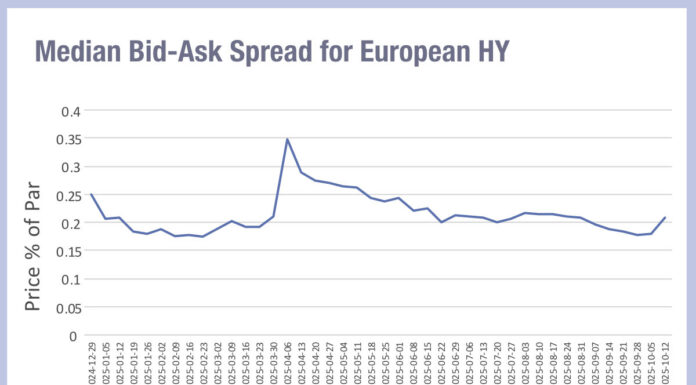
Last week US market regulator the Securities and Exchange Commission (SEC) signed off the development of a single central source of new issue reference data for corporate bonds, to be developed with market agency FINRA.
As with a similar service, which is already available in the municipal bond market, the new issue reference data and updates to reference data for seasoned issues, will be disseminated in real time to all reference data vendors and market participants, ensuring that everyone has access to the same data at the same time.
To that end, the e Technology and Electronic Trading Subcommittee of the SEC’s Fixed Income Market Structure Advisory Committee (FIMSAC) has recommended that the SEC, in conjunction with FINRA, establish a new issue data service with the following elements:
• The managing underwriter of all TRACE-eligible corporate bond new issues, including registered offerings and unregistered Rule 144A offerings, would be required to send the specified new issue information as well any follow-up adjustments, electronically, to a central database managed by FINRA;
• The managing underwriter would be required to submit the new issue information to FINRA no later than distribution of the information to any reference data vendor or other third party not involved in the offering;
• Once the central database has all the required reporting information, FINRA will make the data available in a real-time electronic format to reference data vendors and other market participants as determined by FINRA;
• And FINRA shall provide subscribers with access to the service on an impartial basis at fees determined on a commercially reasonable basis, subject to applicable regulation.
The proposal was made in 2018 and has faced some opposition from several quarters including Bloomberg, which made six objections during the process, and argued the existing commercial model for primary market data via Bloomberg and others was proving sufficient.
Its counsel, Benjamin Beaton, noted in March 2020; “The unrebutted evidence before the Commission shows electronic fixed-income trading is occurring more frequently and rapidly than ever before. No evidence indicates that current methods of consensual information distribution are impeding electronic trading. FINRA’s proposal to replace this cooperative regime with a compulsory regulatory mandate is unnecessary, unsupported, and likely ineffective.”
Other objections came from the US Chamber of Commerce and lobby groups including the Heritage Foundation, whose senior fellow in economic policy, David Burton, said, “the proposed rule would reduce competition. A regulatory mandate of a monopoly provider is the very antithesis of a ‘free and open market.’ A free and open market in corporate bond data is what exists currently.”
However, support for the idea was voiced by FIMSAC itself and several other parties including Lynn Martin, president and chief operating officer at ICE Data Services who wrote, “We agree that removing the information asymmetry which currently existing in the market will contribute to greater market transparency and reduced trading and capital costs in the corporate bond market. Finally, we agree with the proposal’s suggestion for adapting the intent of current municipal bond data reporting and dissemination framework under MSRB Rule G–34 to the new issue corporate bond context as an efficient means of achieving this objective.”
In approving the new service, commissioner Elad Roisman, acting chairman, said, “I believe it will help address an inefficiency in the corporate bond market, improve secondary market liquidity, and promote competition among data vendors and market participants. Data vendors, if they so choose, will all be able to access, at the same time, a minimum set of terms and conditions information upon which they can build the more enhanced products and services their clients demand.”
He continued, “Trading venues likewise will be able to access the minimum data elements necessary to make a corporate bond available for trading at the time secondary trading begins. These developments should also serve to facilitate greater competition amongst intermediaries who will be able to participate to a greater extent in the corporate bond market at the time a bond may be most liquid.”
The new issuance process has been a source of great operational pressure on investment firms due to the lack of standardised information provided by syndicate banks to investors; in August 2020 The Credit Roundtable, a buy-side lobby group aiming to reduce operational risk in credit markets, published a framework for the new issuance process to be followed by sell-side firms.
©Markets Media Europe 2025













